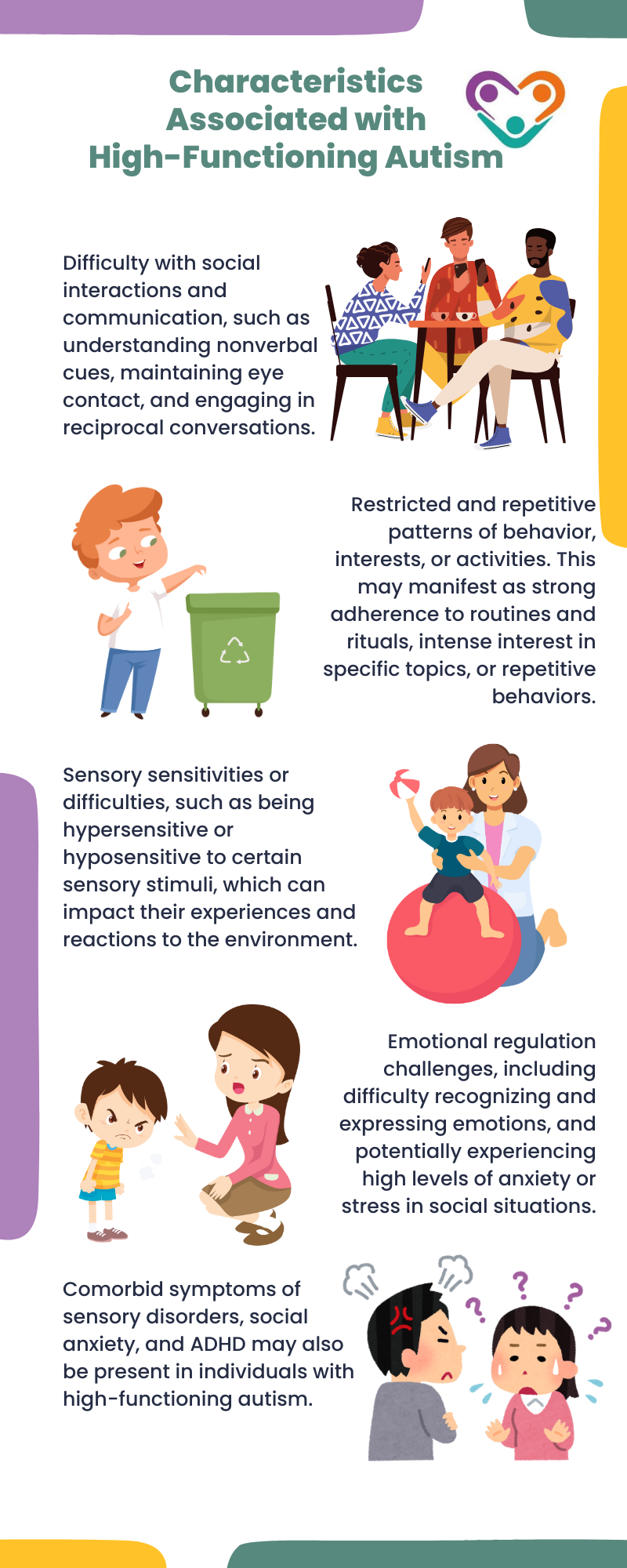
ABA therapy is rooted in the principles of behavior analysis. It involves breaking down complex behaviors into smaller, manageable components and utilizing behavior-based interventions to teach and reinforce desired behaviors.
The therapy is known for its structured and individualized approach. Behavior analysts conduct thorough assessments to understand an individual’s strengths, weaknesses, and specific needs. Based on this assessment, a personalized treatment plan is developed, targeting specific goals and objectives.
ABA therapy employs various techniques such as positive reinforcement, prompting, modeling, and systematic desensitization. By consistently implementing these techniques, individuals with autism learn new skills, reduce challenging behaviors, and improve overall functioning.
But is it effective for those with HFA (high-functioning autism)? That’s what we’re going to find out.
What is High-Functioning Autism?
High-functioning autism (HFA) is a term commonly used to describe individuals on the autism spectrum who may not have an intellectual disability but still experience challenges in communication, social interaction, emotion recognition, and expression.
It is worth noting that the term “high-functioning autism” is not a diagnostic term and is based on IQ rather than a functional assessment, which could potentially hinder access to necessary care for these individuals.
Individuals with high-functioning autism often present as neurotypical or nearly neurotypical people with some slight behavioral differences. While they may lead normal lives, they may struggle with certain aspects of social skills. Their social skills may be underdeveloped but not markedly so.
Some of the characteristics commonly associated with high-functioning autism include:
Effectiveness of ABA for High-Functioning Autism
When considering the effectiveness of Applied Behavior Analysis (ABA) therapy for individuals with high-functioning autism (HFA), it is important to understand the tailored strategies employed in ABA and the differing perspectives on its use.
ABA therapy can be modified to suit the specific needs of high-functioning individuals with autism. This population may benefit from a less structured format for more flexibility and individualized learning opportunities.
A modified ABA program takes into account the strengths and weaknesses of each child and adapts the strategies accordingly. By doing so, ABA can effectively address their specific challenges and support their development.
A qualified behavior analyst and therapist who is trained in ABA can conduct a Functional Behavior Assessment (FBA) to evaluate the individual’s needs and design a personalized Behavior Intervention Plan (BIP). This assessment and plan help identify areas of focus and determine appropriate interventions to replace problematic behaviors with more effective ones.
Additionally, after-school programs and community autism groups led by experienced professionals can provide valuable support and opportunities for growth.
Individualized Treatment Benefits
One of the key advantages of ABA therapy for high-functioning individuals is its ability to provide individualized treatment plans. A qualified behavior analyst and therapist trained in ABA can work closely with the individual to identify their specific needs and develop strategies tailored to their strengths and challenges.
By targeting specific behaviors and social skills, ABA therapy helps individuals with HFA enhance their ability to navigate social situations, communicate effectively, and develop meaningful relationships.
The individualized approach ensures that therapy addresses their unique needs and focuses on areas where they require support.
Integration into Daily Life
ABA therapy can be implemented outside of therapy rooms or autism-specific classrooms, integrating into the individual’s daily routines and settings. This approach allows individuals with high-functioning autism to practice and generalize the skills they learn in therapy to real-life situations.
For example, ABA therapy can help individuals with HFA enhance their social skills by learning appropriate ways to greet people, engage in conversations, and navigate social interactions.
Additionally, after-school programs and community autism groups led by experienced professionals can provide opportunities for individuals with high-functioning autism to further develop their social skills and apply the principles of ABA therapy in a supportive and inclusive environment.
It is important to note that ABA therapy is not the only therapy option available for individuals with high-functioning autism. Speech therapy, occupational therapy, physical therapy, and medication can also help address specific areas of need, such as improving communication clarity, enhancing daily task effectiveness, developing fine motor skills, and managing symptoms like anxiety or obsessive-compulsive behavior.
Sources:
https://www.verywellhealth.com/applied-behavior-analysis-259920
https://www.autismspeaks.org/expert-opinion/aba-teens
https://www.appliedbehavioranalysisedu.org/what-is-high-functioning-autism
- Autism Routine Disruption in Adults: Coping Tips - July 16, 2024
- Autism and Obsession: An Overview - July 16, 2024
- Autism and Taking Clothes Off: Management Tips - July 16, 2024



